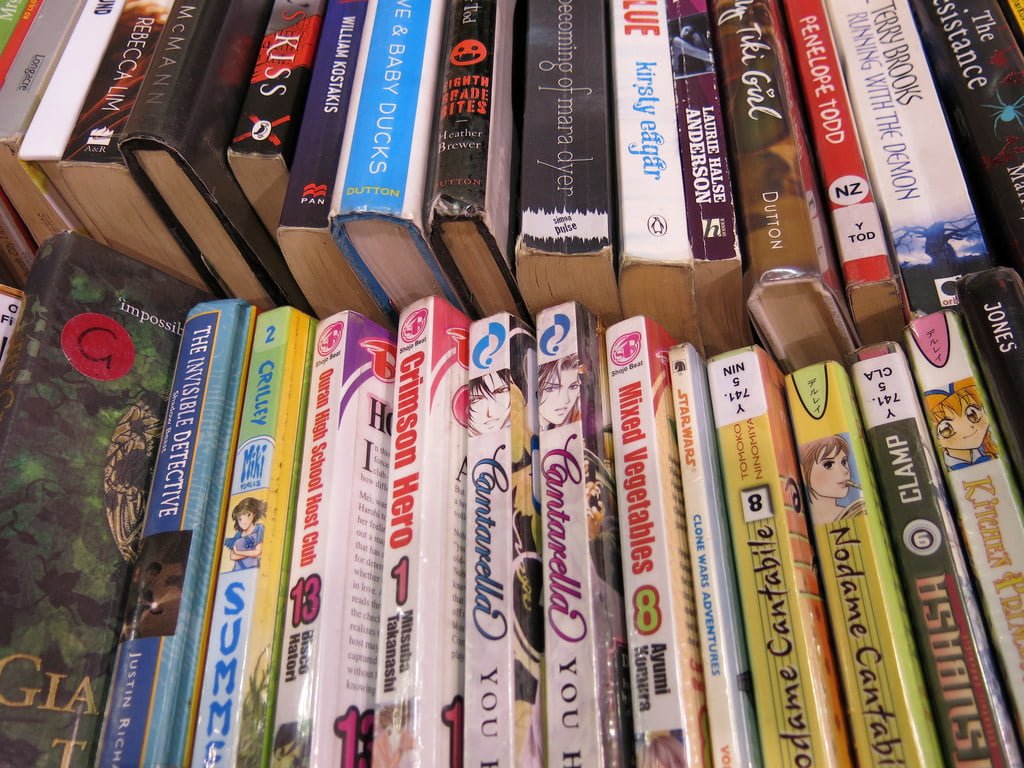Pushing Boundaries in Young Adult Fiction
April 23, 2016

Photo Credit: Donna Robertson
What is the future for Young Adult publishing? This question was at the heart of the Salford University Young Adult Conference 2016 that took place at Media City on April 9th.
With an estimated 55% of Young Adult fiction being consumed by the over 25s, the conference focused on the ever-growing share this section of the market commands. Carnegie Medal winning author Melvyn Burgess, widely acknowledged as the pioneer of the genre, was the keynote speaker, leading delegates through his impressive back catalogue.
Burgess’s Junk is one of those rare once read, never forgotten novels and in his address to the delegates, he explored the impact the novel has had on generations of authors. Junk paved the way for today’s proliferation of “issues-based” novels, where readers are able to dip into the worlds of fictional others to consider aspects of sexuality, identity, mental health and relationships in a safe environment.
And is that still the future for Young Adult fiction? Well, the later panel discussion agreed that contemporary realism is hugely popular and all the signs suggest it is a subgenre that is set to stay. Equally, fantasy fiction and dystopian worlds show little sign of losing ground. The growth in the YA genre as a whole is highly encouraging, although one possible argument concerned the danger that YA may be taken over by adult readers. Would this make authors write their stories differently- either consciously or sub-consciously? The question of gatekeepers was discussed in this context: is it possible to write honestly for the teenage market when librarians and parents may want to censor what young people read? Swearing and references to sex are always sensitive subjects, and “clean teen” fiction is often an easier sell.
Nikki Heath, an eminent schools’ librarian, discussed the challenges of getting young people to read, especially in areas of economic deprivation where perhaps books are not seen in the home. She shared some of the fantastic projects she has initiated in her own school. Acclaimed children’s author and creative writing lecturer Sara Grant, also spoke about the writing process and how her own interest in fictional worlds, on-screen and print, help to shape her writing.
Dr Gill James, senior lecturer in Creative Writing at Salford University, chaired the round table discussion. Are there enough working class characters in YA fiction? prompted significant debate. As a YA novelist, I am committed to presenting working class characters in my fiction; people who are not from privileged backgrounds and lead ordinary lives in which challenging events occur. The panel agreed that the working class and lower-middle classes are often under-represented in YA. Furthermore, Dr Vanessa Harbour from the Golden Egg Academy commented on the ways YA fiction is making great strides towards inclusivity, featuring LGBTQ and BAME characters that have traditionally been under-represented in fiction. Ten, even five years ago, these books may have not come to the market. In this way, YA can be said to push boundaries that adult fiction has yet to consider.
What do we need to see more of in YA? was another interesting topic. I explained humour is an area I’d like to see more of personally. While the consensus remains that issue-based fiction is vital, perhaps there is room for more light-hearted writing too. As well as being moved by a novel, sometimes it is good to laugh or simply feel entertained. Fiction with male protagonists was another interesting point. It is often assumed that “boys don’t like reading” and some delegates argued that the market reflects this, with YA dominated by female voices. Conversely, the debate went, maybe if male voices were more evident then more young men would read.
The audience Q and A generated interesting discussion around taboos. Are there any taboos still remaining? Mental illness, self-harm, eating disorders, gender transition, rape, incest…these are all the subjects of recent Young Adult fiction and this has attracted some criticism: is YA fiction too bleak?
Young Adult fiction is the fastest-growing area in publishing and twenty years ago, it hardly existed. Perhaps it is its willingness to address controversial topics that makes it so appealing to adults both young and… not so young.
Rachel McIntyre is the author of two YA novels: Me and Mr J (Egmont) and The #1 Rule for Girls (Egmont).

Comments